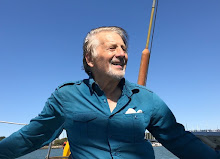It 's been over twelve years since Amadou Diallo was shot by police in New York, but the case stays with me.
A reminder: four police officers approached Diallo, thinking he might be the person they were looking for that night. When he pulled out his wallet (presumably to identify himself), one of the officers yelled "Gun!", prompting the other officers to join him in firing at Diallo. Diallo was shot nineteen times, and was killed. The officers were distraught to find there was no gun - Diallo had not been a threat to them.
The officers were charged with second degree murder, but were acquitted on the grounds that they reasonably considered themselves threatened. I think the decision to try the four as a group was a mistake by the prosecution: as the officers were tried as a group, the jury considered their group reaction to the misperceived threat, and clearly when the threat of a gun is loudly announced, police officers would be expected to respond in self protection.
I believe the officer who yelled "Gun!" should have been the only officer charged, and he should have been charged with manslaughter. Yes, he made an honest mistake, but that mistake predictably led to the death of Diallo. It's my understanding that making a mistake leading to someone's death justifies a manslaughter conviction. And when a mistake can predictably lead to a death, it seems to me that there is a duty to be particularly careful NOT to make a life threatening mistake.
If I may make what may seem a distant analogy: imagine you are driving on a city street, and see a pedestrian in a crosswalk. You jam on your brake - except you made a mistake, you jammed your foot on the accelerator thinking it was the brake, so the car sped up and killed the pedestrian. Would your "honest mistake" absolve you from any criminal prosecution for causing that death? I don't believe so. A driver has a responsibility to be careful in controlling a car when a life is at stake - and a police officer has a responsibility to be careful in identifying threats if death is the likely result of a carelessly calling out a non-existent threat. (One could also think of the well-known saying that free speech does not allow one to shout "Fire!" in a crowded theater.)
So if I had been in a position to decide on prosecution in the Diallo case, I would have focused on the action that precipitated the shooting, not on the shooting itself.
Sunday, August 7, 2011
Subscribe to:
Post Comments (Atom)

No comments:
Post a Comment